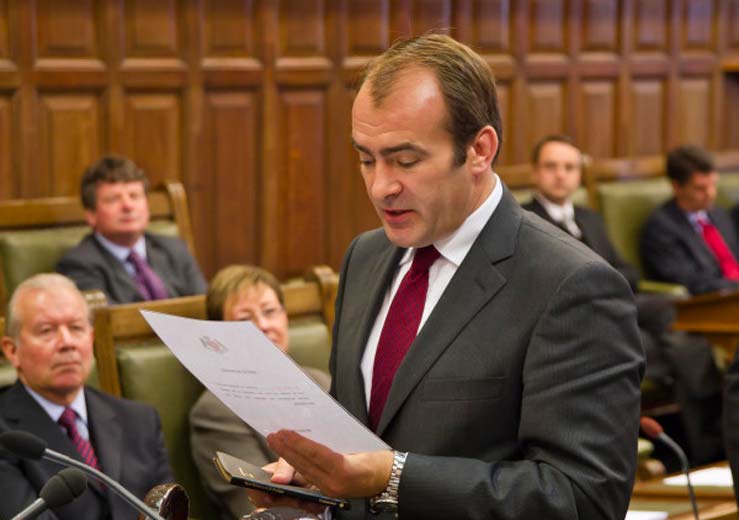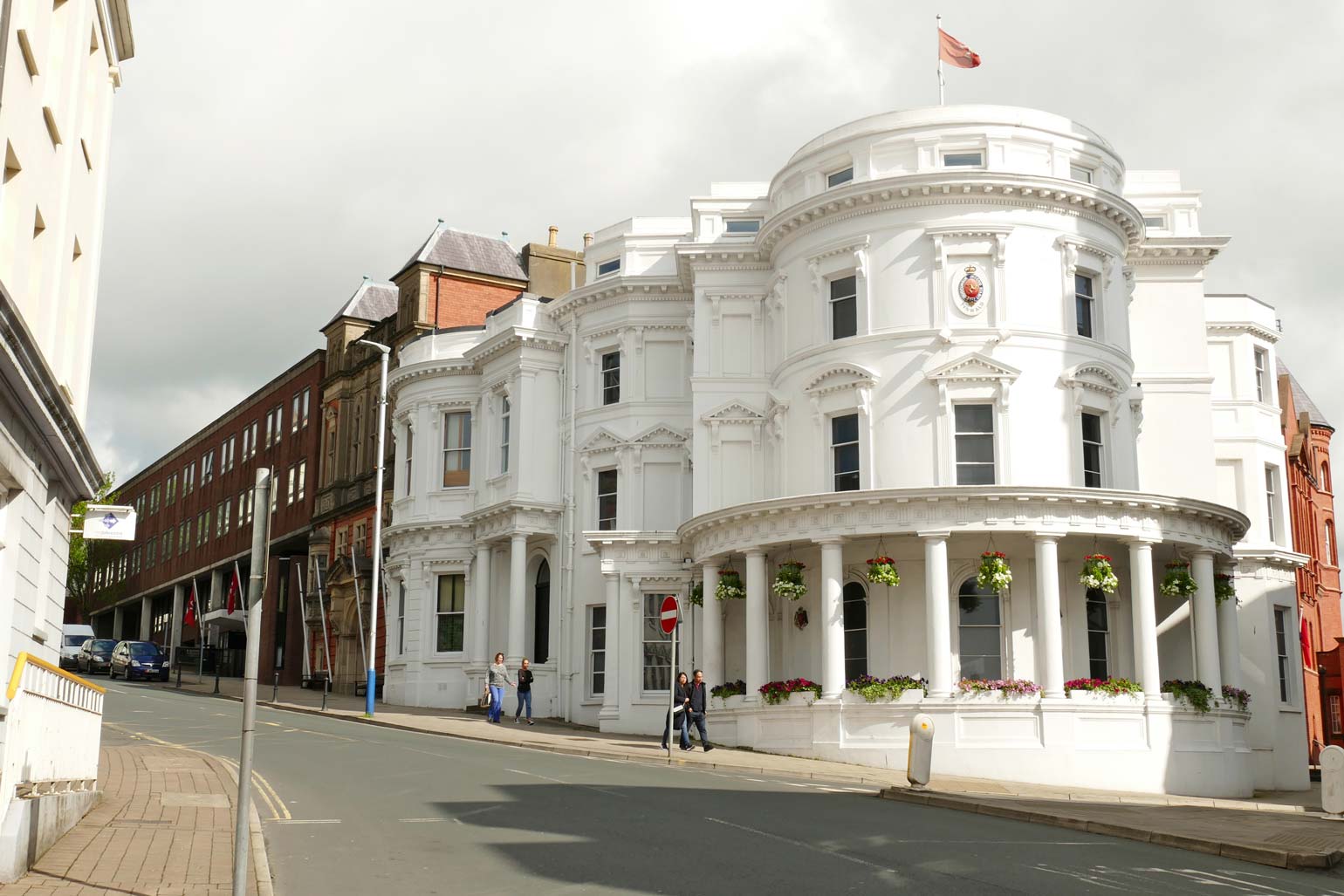
How does theManx parliament work, where does it sit and what happens during the annual ceremony at St Johns in July each year?
Not only is Tynwald the oldest continuous parliament in the world, but it is also the only one with three parts (it is tricameral) - there is the House of Keys, the Legislative Council, and the two chambers sit together as Tynwald Court.
Tynwald Court
Tynwald Court normally meets on the third Tuesday of each month, and consists of the members of the House of Keys and Legislative Council sitting together. Meetings can last for up to three days and normally begin at 10.30am.
The main purposes of Tynwald Court are to debate policy issues (including the Chief Minister's annual Policy Document), to approve all taxation and government spending, and to deal with secondary legislation. This refers to rules, orders and regulations made within the scope of existing law, and it is often referred to as 'Delegated Legislation'.
The sessions of Tynwald Court are presided over by the President of Tynwald, who is elected for a five-year term by the Members. Prior to the election of Sir Charles Kerruish, in 1990, as the first President of Tynwald, Tynwald was presided over by the Lieutenant Governor, who is the King's representative in the Island.
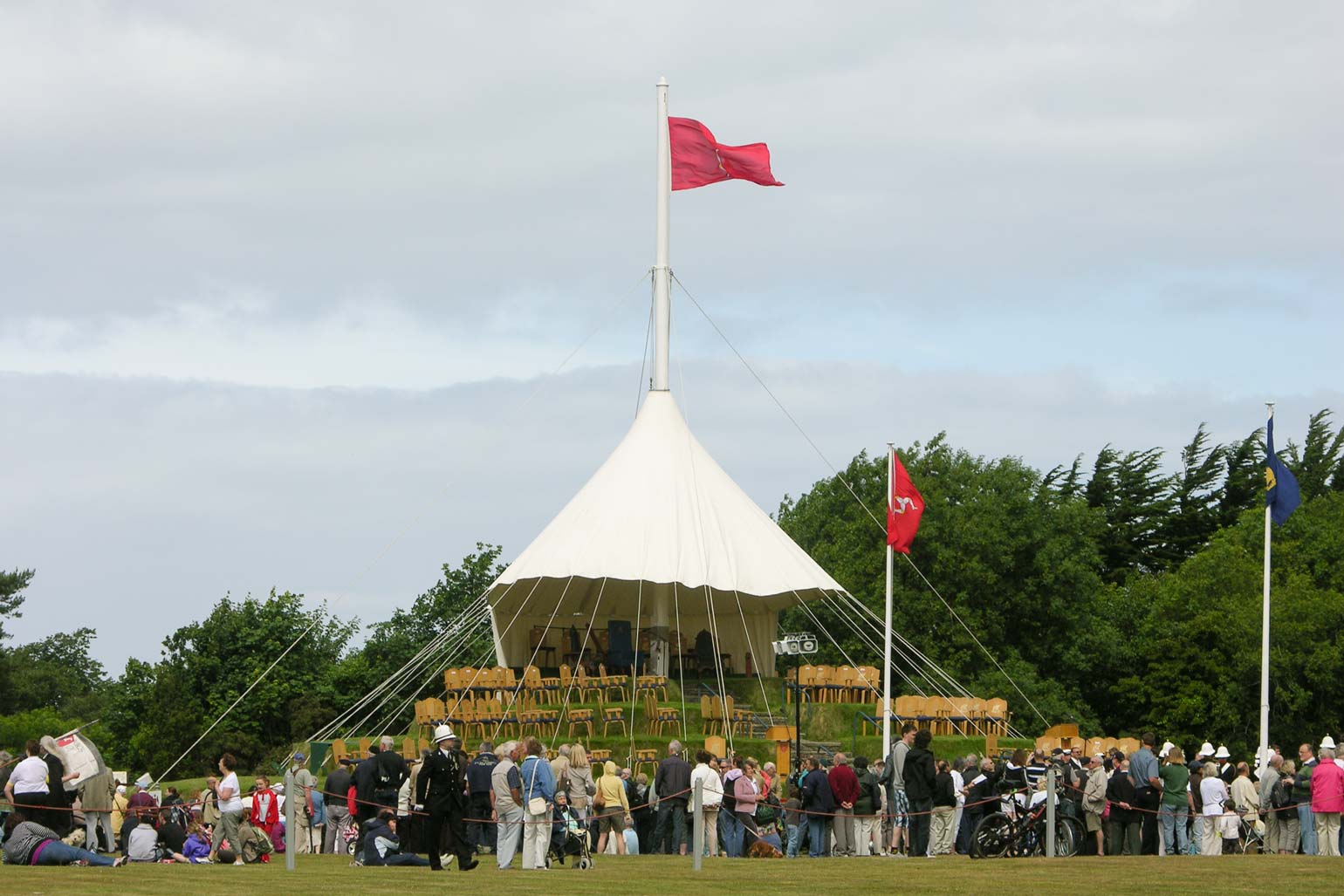
The Midsummer Court (Tynwald Day)
Once a year on July 5th (or the weekday closest to it if the date falls on a weekend), Tynwald meets in the open air at St John's.
The sitting is more than a mere ceremony - though there is much ceremonial celebration - as there has always been a legal requirement to proclaim legislation to the people on this occasion.
There is also an ancient right to petition Tynwald with individual grievances, and each year several such petitions are made and, if considered justified, investigated by a select committee of Tynwald.
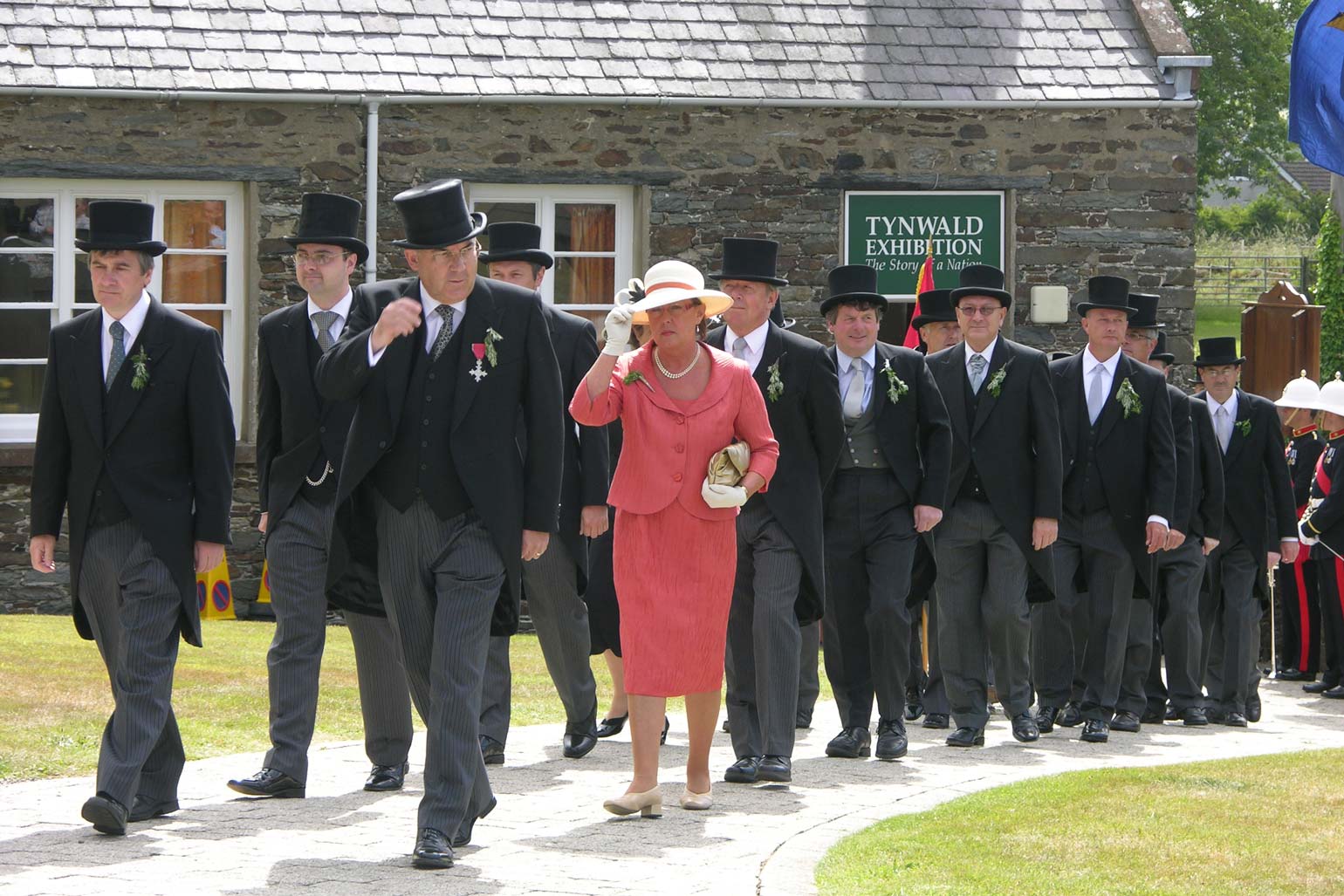
Order of Proceedings
The day, known as Tynwald Day, begins with the Court assembling for worship in the Royal Chapel at St John's, after which there is a procession to Tynwald Hill - one of the ancient sites of open-air parliamentary meetings.
During the open air sitting the Coroners are sworn in and all Acts of Tynwald, which have had Royal Assent, are promulgated in both Manx and English by the two Deemsters (the High Court judges).
Parliament & Government
One function of any parliament is to scrutinise the work of Government, and Tynwald is no exception. All three branches have various devices which can be used to achieve this goal, some of which apply to all chambers and others are specific to the individual branches.
The environment within which this scrutiny operates is very different from that of many other parliaments in the British Isles though. This is because unlike the UK, Scotland, Wales and Northern Ireland, the Isle of Man does not have a party system: there is no system of Government and Opposition and no whip system.
In many ways, this is very helpful since it means that Members approach issues on their merit rather than having to follow a 'party line.' It also ensures that the Government does not have an in-built majority to force its measures through.
Ministers
The nine Ministers that make up the Council of Ministers are bound by collective responsibility. Departmental Members however, who are appointed by the Chief Minister from the membership of Tynwald to assist Ministers, are not. Nor are they junior ministers - their only authority is that which a particular Minister delegates to them.
Passage & Scrutiny of a Bill
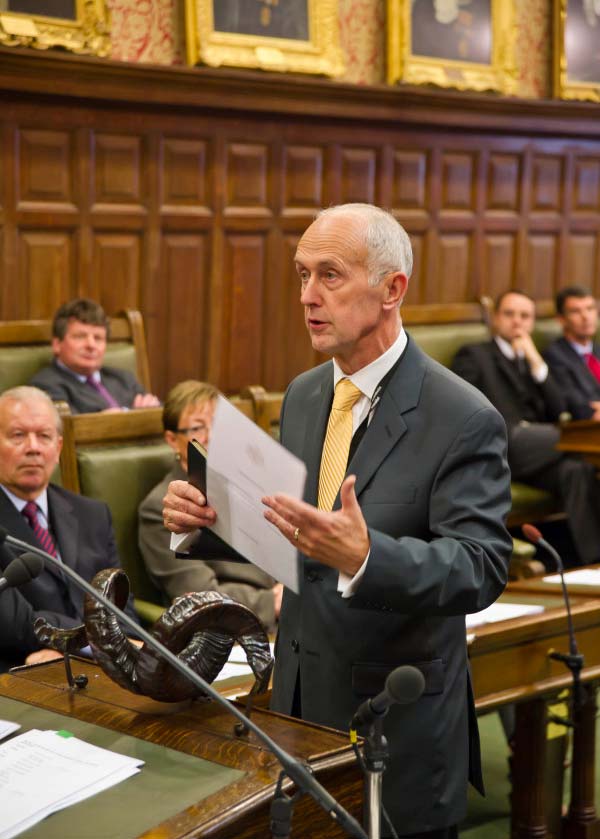
The first opportunity occurs at the Second Reading stage of a Bill. At this stage, the Keys discusses the principle that lies behind the proposal and a vote is taken on whether to proceed. Given the lack of a built-in government majority, the approval of the Keys is not always forthcoming. While many Government Bills do receive a Second Reading, some do not.
Once a Bill has passed its Second Reading, Members have a further opportunity for scrutiny and amendment at the Clauses Stage. The Clauses Stage provides for in-depth analysis of the proposals in the Bill. It is usually taken by the whole House but sometimes, if a Bill is particularly complex, it may be taken by a committee of the House, which will report back.
At this stage Members frequently propose amendments - either to make the Bill a more workable piece of legislation, to extend it beyond that which the Government originally intended, or to change the original intention behind it.
Amendments can be the subject of vigorous debate and some of them succeed while others do not. However the fact that such an opportunity exists and can succeed provides the Keys with a valuable means of scrutiny.
Having passed through the Keys, Bills are then considered by the Legislative Council. Again the Council can and does propose amendments to legislation, but the Keys have to endorse any amendment made.
In the event of a disagreement between the two branches, the Council effectively has delaying powers akin to those of the House of Lords in the UK.
Committees of the Legislature
Tynwald, like most parliaments, makes use of committees to undertake scrutiny of government and a number of standing and select committees exist.
A standing committee lasts for the duration of a parliament, namely five years, while a select committee is one established to investigate a specific issue and report on it. In addition, there are joint committees with Members elected by each branch separately.
One of the most important committees in this regard is the Standing Committee on Public Accounts. It has six Members who are elected by Tynwald Court after each general election, but to ensure its impartiality no Member of the Council of Ministers is eligible to serve on it. In addition no Member of the Committee is allowed to sit on inquiries into a Department in which they serve as a Departmental Member.
Not only does it consider the accounts of Government to ensure that monies have been spent in accordance with Tynwald's authorisation, but it also may consider any papers on public expenditure presented to Tynwald, and any of the Departmental Estimates it may choose to look at.
Part of this wider remit gives it the ability to report on whether policies could be achieved in a more economic manner. To facilitate its work, the Committee often establishes sub-committees to undertake particular investigations.
All committees have the authority to summon persons and papers, and both ministers and civil servants regularly appear before them to give evidence. The outcome of committee reports may be that government would adapt its policies in the light of committee criticism or recommendation.
A final means of scrutiny takes place in the Legislative Council, which considers summaries of proceedings within the Council of Ministers (in private session). This too can prove a useful exercise, since it gives the Members some idea what the Council of Ministers is considering and how it might go about achieving its aims.
You May Also be Interested In
Question Time & Debates
The importance of Question Time & Debates in the Keys and Tynwald Court


